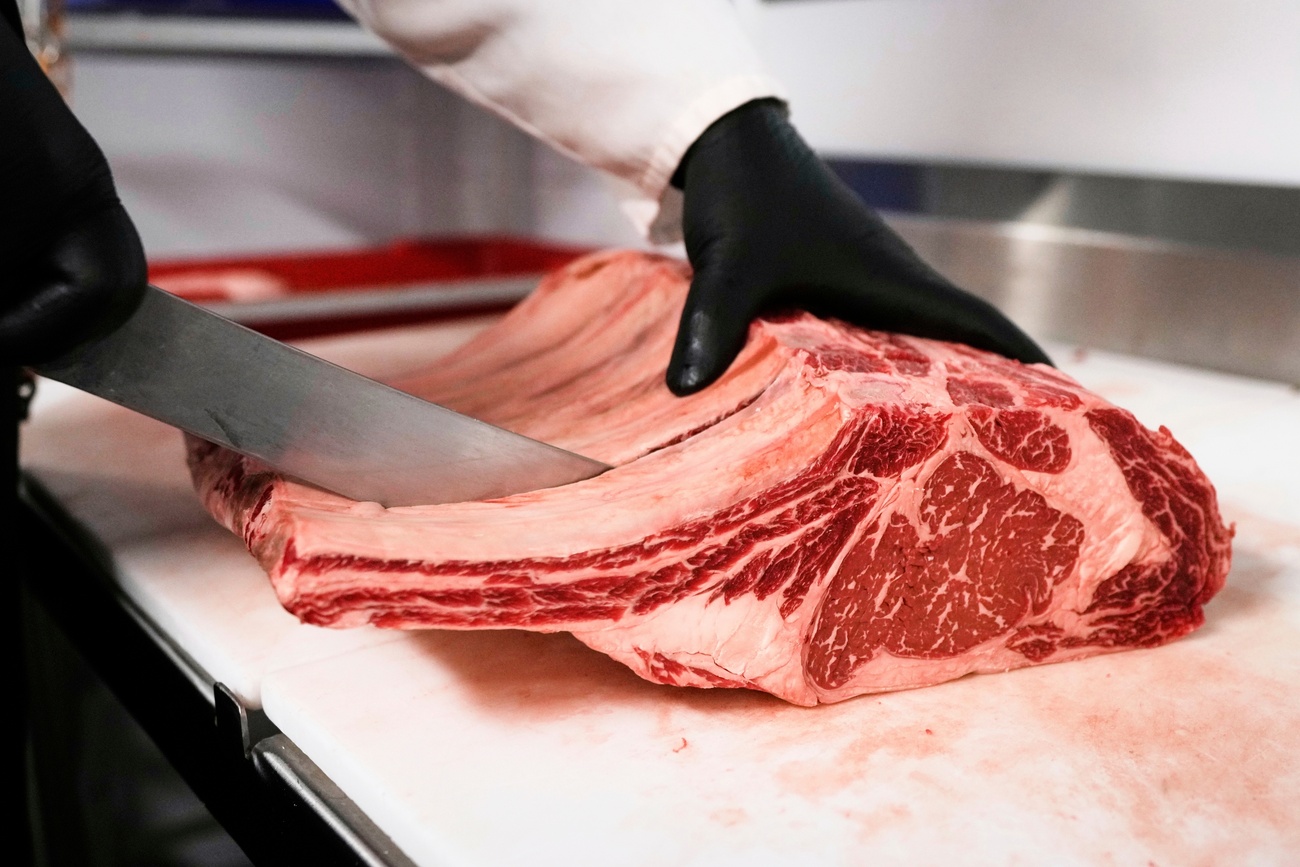

Switzerland Today
Dear Swiss Abroad,
A celebrity on holiday, cooling off in lakes and rivers, and how about a glass of rosé? Today’s briefing has a holiday feel to it.
If you prefer a walk in nature, you’ll discover that ticks aren’t the only animals you need to be wary of.

The summer heat has prompted many people to take a dip to cool off. But this is not without risks. Between 2012 and 2024, some 600 people drowned in Swiss waters, according to the Swiss Lifesaving Society.
The society’s statistics show that the River Aare is the country’s deadliest waterway, with 70 deaths in those 12 years. After the Aare, Lake Geneva, Lake Zurich and the Rhine have suffered the most drownings.
Men aged 20-30 are over-represented among drowning victims. There are many causes for drowning, including overestimating one’s strength, diving into murky water, drinking alcohol and hydrocution (cold shock response). Last year, 52 people lost their lives in lakes and rivers.
But beware: danger can also be found in swimming pools, especially for young children. Swiss public television, RTS, reported that 12 children had been saved from drowning at the public swimming pool in Prilly, canton Vaud, alone since the start of the season. The pool’s managers note a lack of vigilance on the part of parents, who are often too preoccupied with their phones.

Summer and the holidays are also good times for aperitifs, with a glass of chilled rosé or white wine. The problem, at least from the point of view of Swiss winegrowers, is that wine consumption is falling and less is being produced locally.
Faced with this unprecedented crisis, a ground-breaking round-table discussion on Monday brought together 150 professionals from the wine industry in French-speaking Switzerland, as well as representatives from the world of politics. The group, known as “Les raisins de la colère” (the grapes of wrath), warned that the situation was untenable and threatened the future of the profession.
The group is calling for government intervention to alleviate the crisis. Suggested measures include limiting advertising for foreign wines, taxing imports, setting up a fund to promote Swiss wine, easing environmental and administrative constraints and, above all, doubling existing subsidies.
But it seems difficult to get support at federal level. The German-speaking majority in parliament is reluctant to intervene for reasons of free market liberalism and not to promote alcohol for reasons of public health, according to Vaud parliamentarian Jacqueline de Quattro.

We don’t know whether he likes Swiss wine or diving into rivers, but Will Smith certainly seems to be enjoying his little Swiss getaway. And the local tabloids seem to be relishing the American star’s peregrinations.
Smith is not in Switzerland for tourism, but for work. The American rapper and actor took part in the Gurten Festival in Bern on Saturday and is performing at the Paléo Festival in Nyon tonight. But these professional obligations don’t prevent him from indulging in a few lighter activities, on which he comments extensively on social media.
It appears Smith has enjoyed the city of Bern, chocolate and the Swiss countryside. His latest discovery: an introduction to the alphorn in Geneva. “I nearly fainted,” he joked on Instagram.

Spending the summer in Switzerland also means taking the opportunity to go for a few walks in the countryside. But this activity is not without health risks.
We already knew that you had to watch out for tick bites, but now there’s another animal to be wary of: the fox, or more precisely its parasites.
Fox tapeworm disease is caused by a parasite found in the faeces, mainly of foxes, but also of dogs and cats. Also known as alveolar hydatid disease (AHD), this can affect humans if the parasite’s eggs are ingested, for example by eating contaminated berries. The parasite then infects the liver and can spread to other organs, leading to a fatal outcome after several years.
A study published in The Lancet Infectious Diseases shows that this disease is on the increase in Europe. Switzerland is the second most affected country on the continent, after Lithuania. An average of 70 diagnoses are made each year in Switzerland.
Prevention is similar to the measures taken against rabies a few years ago. In particular, it is advisable to fence off vegetable gardens to prevent foxes from gaining access, and to wash and cook food harvested in the wild or in the forest. As far as pets are concerned, it is worth worming them with a drug that is active against the parasite.
Translated from French by DeepL/ts

In compliance with the JTI standards
More: SWI swissinfo.ch certified by the Journalism Trust Initiative



























